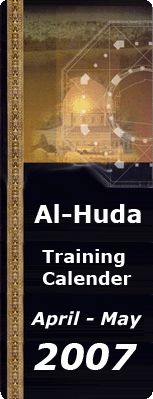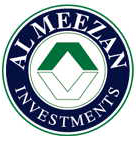LONDON — The downturn in the stock markets in 2006 and the emergence of sukuk (Islamic trust certificates) together with the buoyant real estate market offer good prospects for women investors, stressed Samra Al-Kuwaiz, managing director of the Women’s Division of Osool Brokerage Company.
“Women are risk-averse,” she explained. “The best kind of investment opportunity for them would be a diversified portfolio, based primarily on Treasury bonds, sukuk and real estate. Bonds have not been popular because of the low returns and market depth. Whereas equities saw returns of up to 40 percent in early 2006, bonds (mostly inter-bank bonds) yielded only 6per cent. When you do not have investment diversification, it can be very dangerous. This is indeed a market segment opportunity to be leveraged.”
Al-Kuwaiz is another of the increasing band of high-powered Saudi businesswomen who are making their mark. Articulate, confident and educated in the US, she acknowledges that Saudi Arabia is a highly male-dominated society, and the sheer frustration of a person who, because of her gender and the ultra-conservatism of the society in which she was born, cannot realize her full potential becomes apparent. This frustration, however, is tempered with hope.
Just over a year ago the Kingdom acceded to membership of the World Trade Organization (WTO). Accession, however, requires the Kingdom to strongly promote gender equality and equal opportunities in the economy, workplace and society. How Saudi Arabia reconciles its present position regarding the empowerment of women in the economy with the actual rules of the WTO remains to be seen.
Custodian of the Two Holy Mosques King Abdullah has speeded up the reform process in the Kingdom, including the role of women in Saudi society and especially business. Women have stood for elections to the chambers of commerce and industry in Riyadh, Jeddah and Dammam. But they were excluded in the last municipal elections in the country, allegedly on a technicality because many of them were supposedly not registered and therefore did not have the right identity documentation. This is, in contrast to Kuwait, where women were enfranchised for the first time in parliamentary elections last year, with some 28 female candidates standing for election, albeit none were elected. Saudi women have been promised participation in municipal elections the next time..
Al-Kuwaiz, a former university lecturer, senses a change in the perception of women as human capital.
“This male-only society,” she maintained, “is now viewing women as a possible economic force. Saudi Arabia is a special case. We are very different from other GCC countries. We have complete segregation. We have, let’s say, Islamic challenges that are more evident in the Kingdom. Of course, we abide by Shariah one hundred percent. The Islamists, however, are very preoccupied with women and thus put more pressure on them. But the government is actually asking women to talk. They want to change the stereotypical image of Saudi women in the eyes of the world.”
Despite the high oil prices and high liquidity in the country, the dynamics of the real economy are increasingly beginning to unfold in the Kingdom. Even record budget surpluses in the last four years are not enough to sustain an economy with a demography in which some 60 percent of the population is under 25 years old, in which there is entrenched adult male unemployment officially running at 10-15 percent and an internal public debt of about 60 percent to GDP, which has taken up a large slice of the surplus. Before that the Kingdom historically ran successive budget deficits for more than a decade.
With a fiscal policy still struggling to emerge into the 21st century — there is no personal income tax in the Kingdom — and citizens are spoon fed with all sorts of hand-outs and subsidies, it is inevitable that not far down the line, all Saudis, irrespective of gender and age, will be asked to contribute more to the country’s GDP. Saudi women already own 10 percent of real estate and 30 percent of brokerage accounts in the Kingdom. They own some 40 percent of the family-run companies, very often as silent partners. They have an estimated SR45 billion in deposits in banks and financial institutions. This gives them a substantial financial clout.
At Osool, where she is a partner, Al- Kuwaiz insisted that she plays as full a role as any other senior executive would play in any company. The fact that she is managing director of the women’s division and not the entire company, however, remains a sore point. She believes that she has the potential to go all the way, as other GCC women have done including Maha Al-Ghunaim at Global Investment House in Kuwait and Dr. Nahed Taher at Gulf One Bank.
She believes that Saudi women should set up a women’s lobby with a direct connection to the government so “We can have the right influence.” But the logical step would be to get women members of the Shoura, the Saudi consultative assembly. “Why not?” she asked. “As I understand it, there are steps toward this. The government recognizes the importance of women now.”
However, change will be gradual. “When you are dealing with 27 million people, you have people from all walks of life. The liberals, as you might say, are a very small percentage of the population. Take the issue of women driving cars. Prince Naif (the interior minister) said the government would allow this if the majority of Saudis agreed. This is a form of populist legitimacy. Only a small percentage of the population is pushing for change, while the majority does not want change, because they like the status quo,” she explained.
Al-Kuwaiz has much faith in the new generation of Saudis, because it is more receptive to change, whereas the older generation is still trying to hang on to the past. “They don’t want to see globalization. Most of the Internet sites are blocked. We have to teach the younger generation how to deal with a changing world.”
Similarly, rapid economic development in the last two decades has had an impact. The Kingdom is witnessing a boom which is even bigger than in the 1970s after the first oil price rise. The market capitalization of the Saudi stock market in March 2006, for example, was SR1.9 trillion after the market correction. Before the correction, it was SR2.9 trillion. The volume of liquidity is simply mind-boggling. The Tadawul All-Share Index (TASI) on March 13, 2007 stood at 8,562.17 points, well down on the heady days only a year and a half ago when the TASI broke the 10,000 and 11,000 points barriers with regularity.
Despite the greater role for women in the Saudi economy, Samra Al-Kuwaiz rues the fact that there is massive hidden unemployment. Some 80 percent of Saudi women are unemployed. This, she stresses, is a tragedy by any standards. “Why, we are back to square one, because women aren’t allowed to work with men. Desegregation has to start with the young. You cannot have a society that is segregated, and then ask women to work or study with men. There has to be a change of mindset in society,” she explained.
As is true with any working mother, Al-Kuwaiz has learned to cope with the stresses of running a home and working in a high-powered job. “I have a great job and chances which most people only dream of. I have a very good support system from my husband and family,” she stressed.
As a partner in a registered brokerage firm, headquartered in Riyadh, she commended the work of the Capital Market Authority (CMA), the securities regulator in the Kingdom. “When they started work more than two years ago, they wanted to understand the hype about the market. There was too much greed in the market. People were getting 20-40 per cent returns weekly. Some were clearly manipulating the market,” she added.
The Kingdom introduced a law outlawing insider dealing at the end of 2004. Not surprisingly, the CMA put its foot down with the result that some Saudis were convicted, fined and jailed for insider dealing.
She is confident that the TASI has bottomed out and that the equity market will stabilize probably at a realistic 8,500 points. “I think the market correction was inevitable, because it was a bubble at the time. The market was overpriced. Out of a population of 27 million, we had 3 million accounts with brokers. Everybody was in the market — even people who were not supposed to be in the markets — illiterate people and those who were borrowing to play the stocks.”
She believes the Saudi market needs more sophistication, diversification and education. She is wary that Saudi investors especially at the retail end have to be made aware of the dangers of market exuberance and that investing in stocks can result in losses as well as gains. In the Saudi market correction of March 2006, for instance, according to one estimate, some 250,000 Saudi families lost their entire savings playing the stock markets. Not surprisingly, the Saudi Arabian Monetary Agency (SAMA) has outlawed borrowing from banks to play the stock markets. Saudi Arabia had one of the largest gearing ratios of the MENA region in 2006 prior to the market correction.
Osool plans to leverage its first mover advantage in the brokerage business in the Kingdom. “We have already started to open accounts and our full marketing campaign begins this week,” confirmed Al-Kuwaiz to Arab News. “We will be the first brokerage firm to operate in the kingdom and we aim to have up to 30 branches up to the end of the year.”
The company is also in the process of getting its license for asset management certificate.
As to the Saudi market, Al-Kuwaiz stressed that it is gaining some of its momentum and “we hope to ride on the wave of future increases in stock prices after the past slump.
It is expected that through the beginning of operating brokerage firms (more than 30 licenses were given so far) the stock market will gain even more momentum.” |








